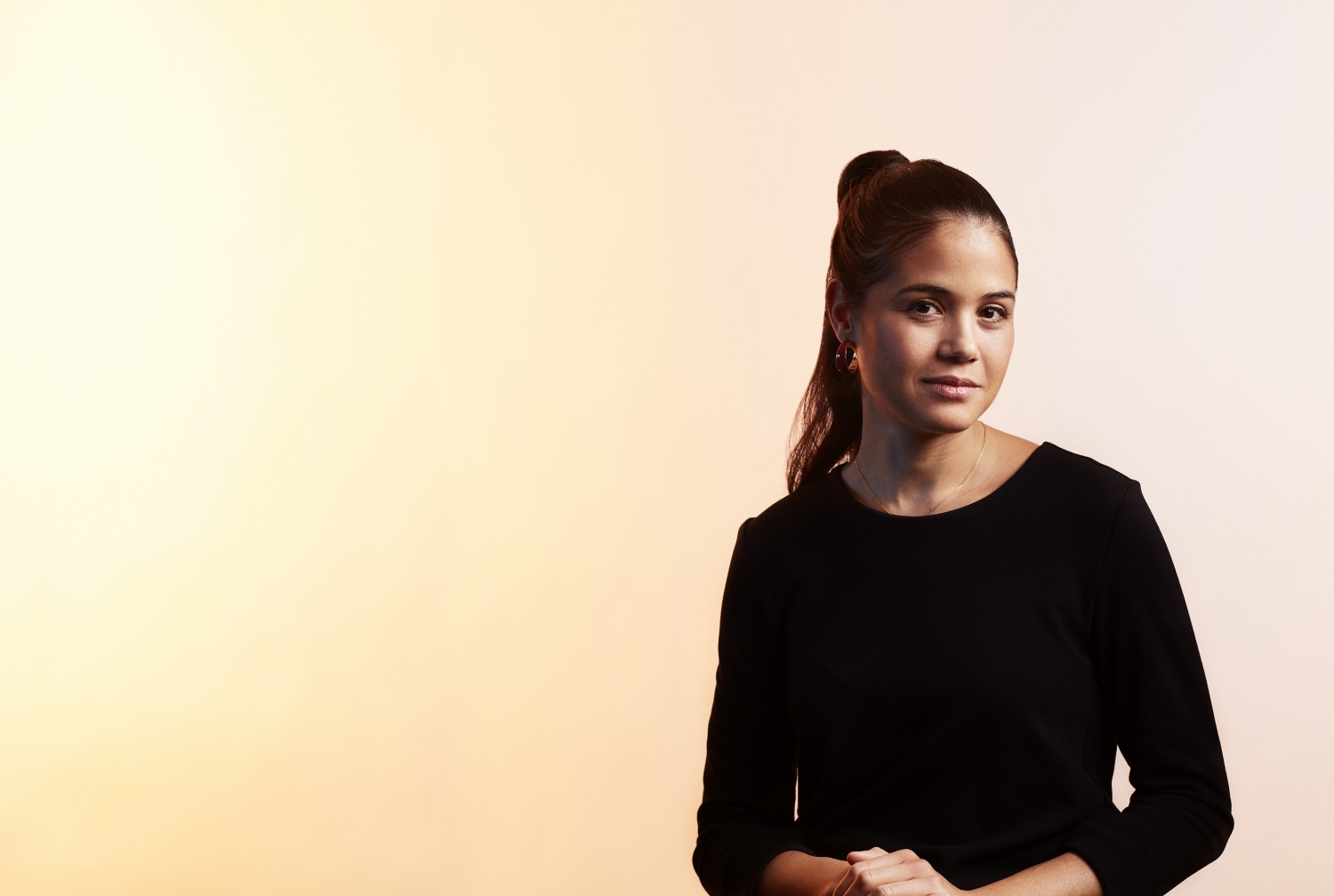By Beth Saulnier
Photos by Stephanie Diani
America’s foreign-born scientists and physicians have long played a vital role in research and patient care in the United States. As the Union of Concerned Scientists noted in a 2017 blog post, immigrants represent more than a quarter of the nation’s entire science and engineering workforce—and foreign-born researchers tend to be extraordinary achievers, including winning a striking number of the Nobel Prizes awarded to scientists affiliated with American institutions. But current political support of policies to restrict immigration has raised concerns about the ability of these foreign-born MDs and PhDs to continue living and working legally in the United States.
At Weill Cornell Medicine, an institution that not only has a global reach but a truly global character, immigrants make untold contributions to the clinical and scientific enterprise. In the following pages, we offer portraits and stories of six members of our community—four faculty, a medical student and a resident at NewYork-Presbyterian/Weill Cornell Medical Center—who came to the United States seeking opportunities unavailable to them in their home countries. Their diverse backgrounds and life experiences have informed their work and enriched the institution—adding to the body of scientific knowledge, and ultimately benefitting patients here and around the world. And their stories embody the ideals of Emma Lazarus’s famous poem The New Colossus; emblazoned inside the pedestal of the Statue of Liberty, it welcomes newcomers with a lamp, lifted “beside the golden door.”
This story first appeared in Weill Cornell Medicine, Vol. 17. No. 2
Training on Two Continents
Dr. Ayman Al Jurdi, MD ’15
Third-year Resident, Internal Medicine
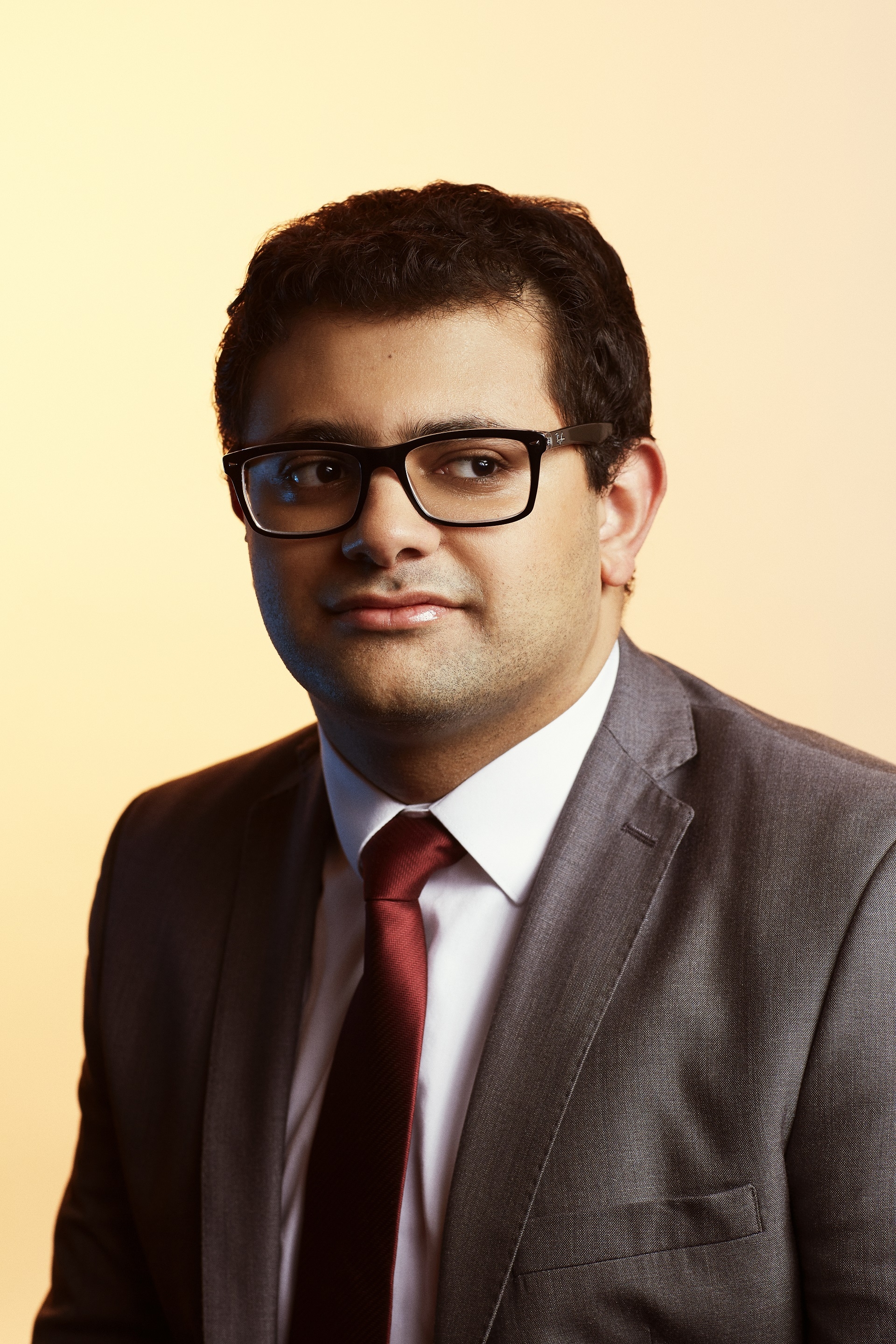
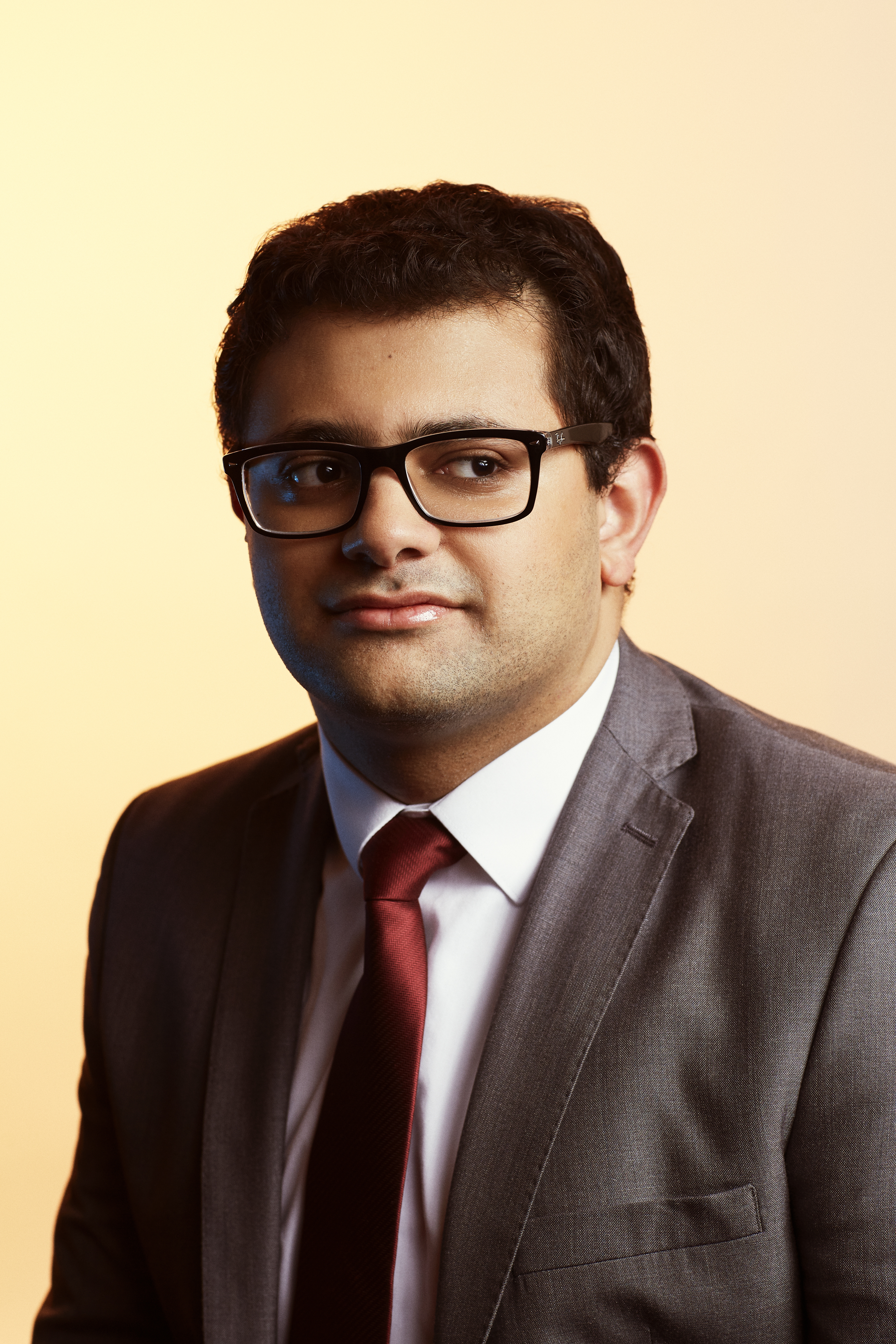
Dr. Al Jurdi earned his medical degree from Weill Cornell Medicine’s Qatar (WCM-Q) location, but training in the United States was always on his radar. Time on the New York campus is part of the educational experience for WCM-Q students, and Dr. Al Jurdi spent several months doing electives here; he also worked in a Weill Cornell Medicine stem cell lab and did research on liver cancer at the College of Veterinary Medicine in Ithaca. That solidified his desire to do his residency in the United States, as do most WCM-Q alumni. “What drew me is seeing that doctors here are not only really good with their scientific knowledge, they’re connected with patients,” says Dr. Al Jurdi, whose older brother preceded him at WCM-Q. “I saw how many resources there were, and I wanted to train in a place where the cutting-edge stuff was available—and also for a cultural experience. Weill Cornell is very diverse: even in my residency class, we have people from nine or 10 countries and from all over the United States. People are understanding of everyone and interested in each other’s background. You feel accepted.”
A Doha native who holds Lebanese citizenship, Dr. Al Jurdi attended WCM-Q’s premedical program before matriculating at the medical school. During his first year in New York, he was named his program’s top intern—and next year, he’ll serve as chief resident. He aims to follow his residency with training in nephrology and transplant nephrology, then gain experience in practice in the United States before returning to Qatar. One lesson he has learned in residency, he says, is the importance of engaging patients in making decisions about their own care, a cultural difference he has observed between the two nations. “Here in New York when we’re trying to decide on a diagnostic or treatment workup and there’s more than one option, we’ll have a discussion with the patient about the pros and cons, taking into account the patient’s values,” he says. “In Qatar, many patients leave decisions about their healthcare up to their physicians out of trust, and follow their recommendations without being as involved in the decision-making. It’s not going to be easy, but the concept of shared decision-making is something I hope to bring back with me.”
Starting Over
Francesca Voza
Second-year Medical Student
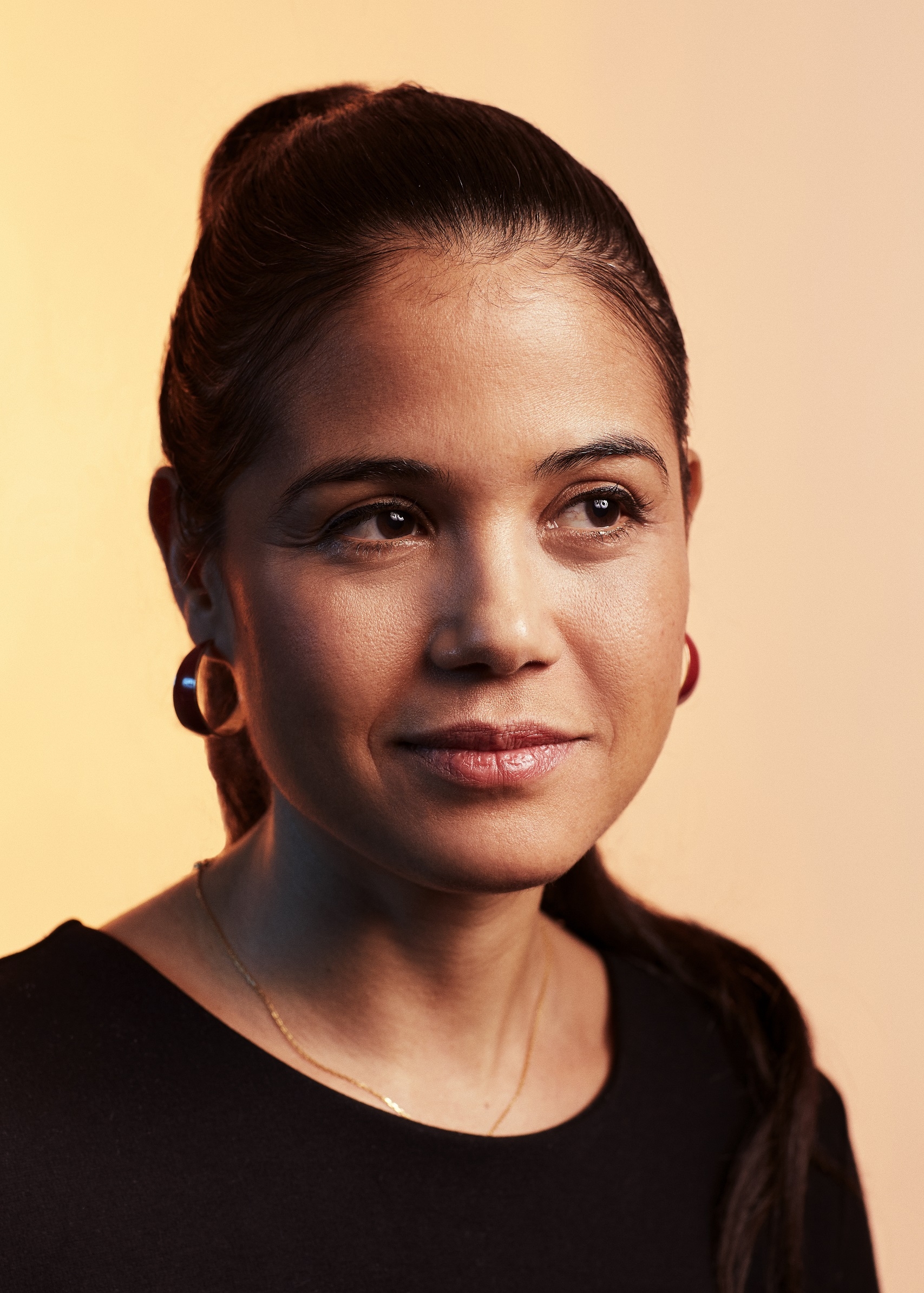
The French educational system has many virtues, but flexibility isn’t among them. That’s the roadblock that Voza faced when her dreams of becoming a physician came up against the reality of stringent national exams, whose results put her on a track toward a PhD rather than an MD. So Voza—who was born on the French Caribbean island of Martinique and earned her bachelor’s degree (in biology and biochemistry) and master’s (in pharmacology) in Paris—decided to move to the United States to pursue medical school. With dual French-American citizenship through her mother, she got a job as a research technician (first at Mount Sinai, then at Memorial Sloan Kettering Cancer Center) and re-applied for undergrad. “It was a battle because it was hard for the schools to evaluate me with my French transcript,” she explains, “but I finally managed to get in.” She spent several years taking pre-med classes at Hunter College as a second-degree student while working full time and contributing to several peer-reviewed publications, accruing enough of an academic track record to gain admission to Weill Cornell Medical College. “I have no regrets in terms of where I am right now,” says Voza, now in her late 30’s. “I just wish it had taken a bit less time.”
As a volunteer evaluator and board member at Weill Cornell Medicine’s Center for Human Rights, Voza says, her language skills come in handy when interviewing asylum seekers from Francophone countries. While she hasn’t yet decided on a specialty, she hopes to contribute to care on her native Martinique in some form. “Medical school is challenging. We’re evaluated on many levels,” says Voza, who has a strong interest in global health and healthcare disparities. “I’m definitely enjoying it. It’s fascinating to apply the material we’re studying to best treat our patients. This is where I wanted to be. Every day I’m so happy to see how much I’ve learned, and how I can make a difference.”
Connecting with Patients
Dr. Ruben Niesvizky, MD
Professor of Medicine
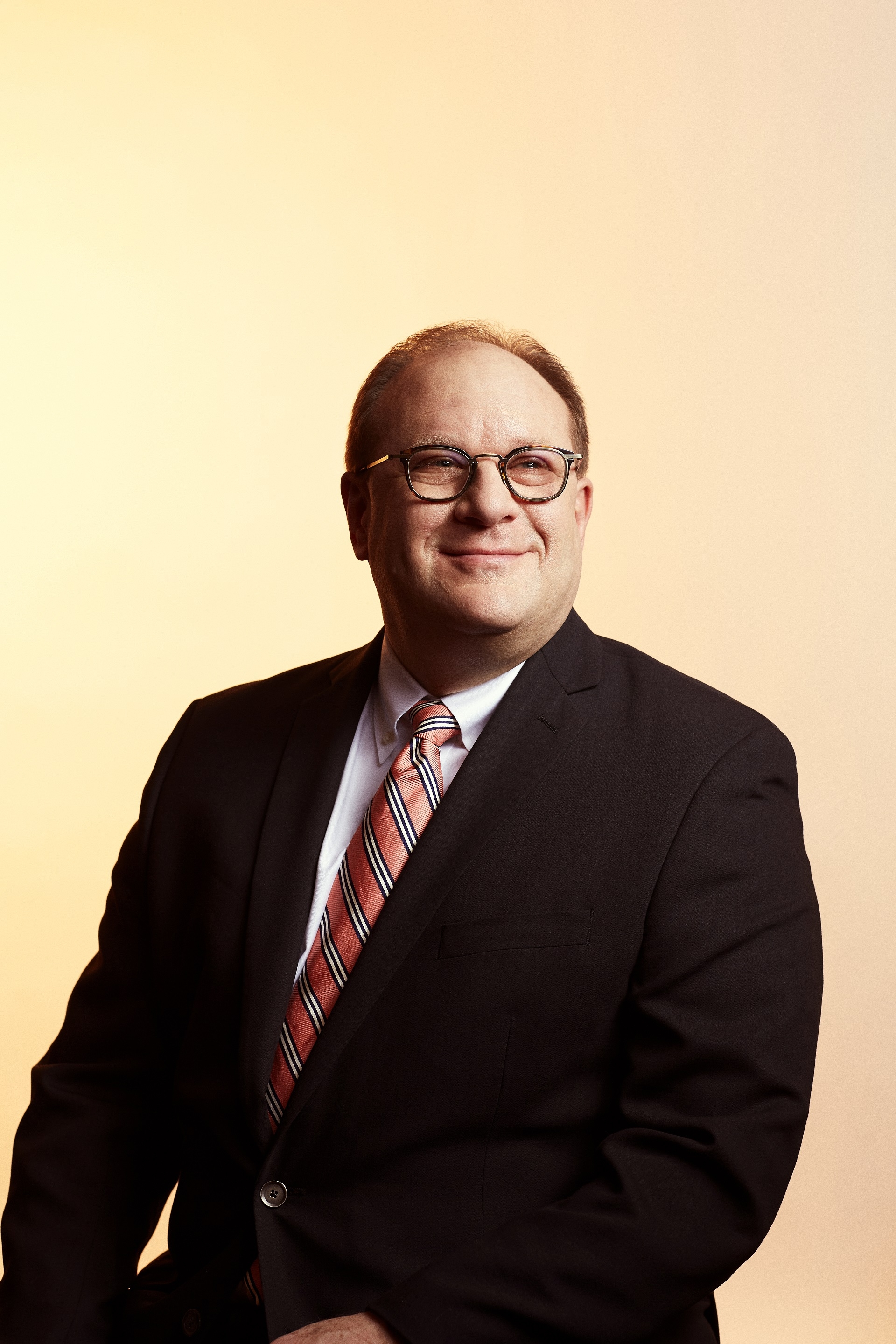
Dr. Niesvizky came to the United States three decades ago, a poignant postscript to a tale that began when his family first tried to immigrate here two generations earlier. As Jews fleeing pogroms in Eastern Europe, he explains, his grandparents on both sides were turned away due to quotas on immigrants from Poland—the same sort of restrictions that denied many 20th-century victims of anti-Semitism a safe haven in the United States. The family ultimately settled in Mexico, where Dr. Niesvizky was born and completed his education and medical residency. He came to New York for a fellowship in hematology and stem cell transplant at Mount Sinai, later shifting to Memorial Sloan Kettering and then to Weill Cornell Medicine. “The opportunities to grow academically were much better in the United States.,” he says. “I wanted to make a contribution to science and to hematology itself.”
An expert in myeloma, a blood cancer that develops in the bone marrow, Dr. Niesvizky is now director of the Multiple Myeloma Center at NewYork-Presbyterian/Weill Cornell Medical Center. He notes that his Spanish fluency has enabled him to connect with patients and families coping with a challenging disease, eliminating the added burden of a language barrier without the need for a translator. “Diseases of the blood are so complicated that explanations in Spanish are always welcome,” says Dr. Niesvizky, who’s also fluent in Hebrew and Yiddish. “When patients see my face, they would never think that I speak Spanish, and all of a sudden I speak to them and their eyes change. They can communicate much better, and that increases their confidence and trust. Patients feel a bit closer to their doctor if they can understand each other.” His unique status as a Mexican-born myeloma expert has also allowed him to establish bridges of research, training and education between the United States and Latin America, where, he notes, physicians who treat blood cancers tend to be generalists. “There is a lot of talent and expertise, but few individuals focus on myeloma itself, and it’s the same for each disease, so it’s enriching for them to see somebody whose focus is disease-specific,” he says. “I often serve as an adviser or teacher in Mexico, and several residents have come here to rotate—and now they are leaders in myeloma there.”
Paying it Forward
Dr. Gunisha Kaur ’06, MD ’10
Assistant Professor of Anesthesiology
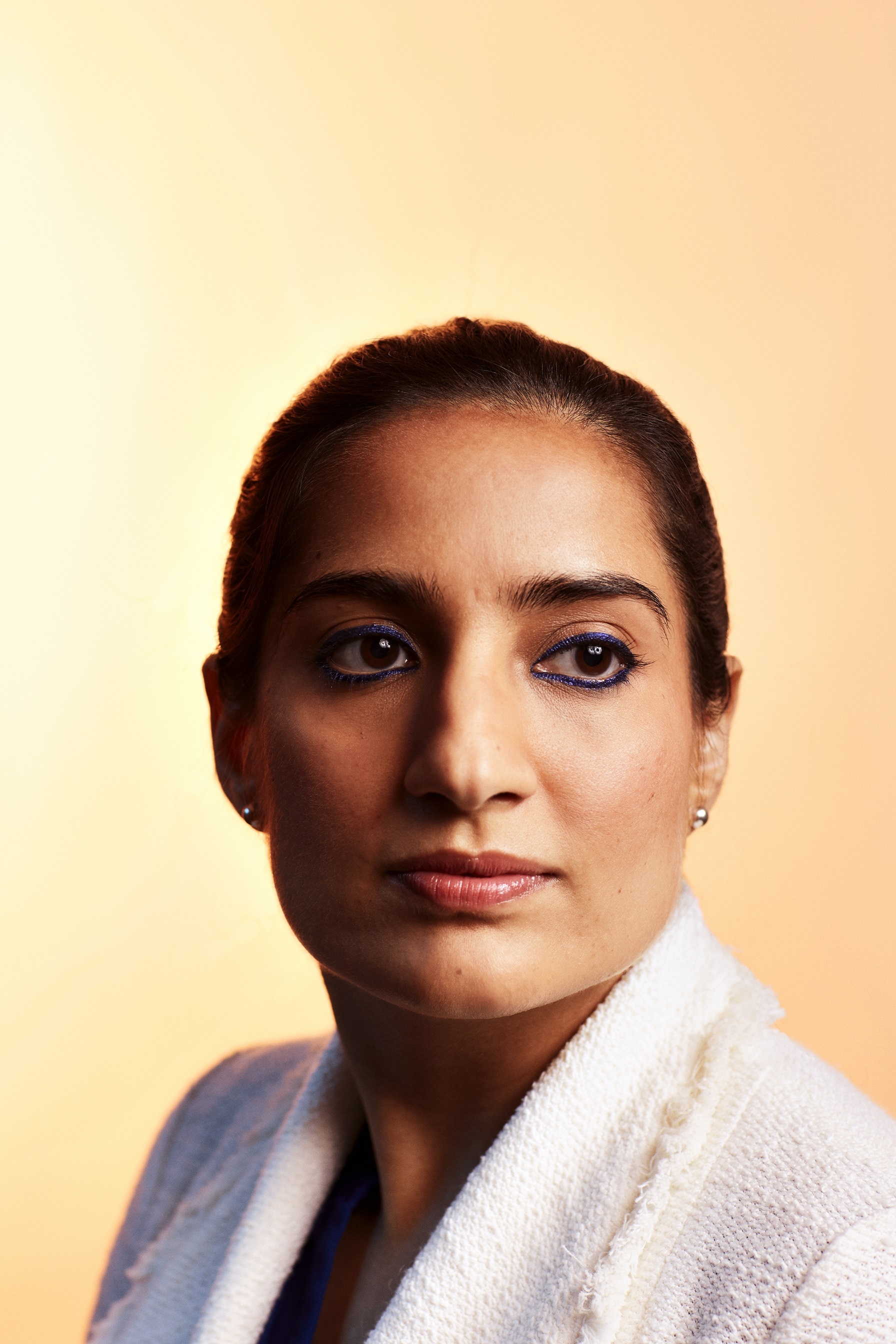
As Sikhs, the men in Dr. Kaur’s family wear turbans and beards. As a result, they have sometimes been the targets of threats or violence—in India, her father was beaten by a mob and left for dead—or everyday bias such as regularly getting pulled out of line for extra screening at the airport. Dr. Kaur’s background and experiences drive her dedication to an unorthodox specialty: studying the ongoing pain endured by survivors of torture. She also volunteers at Weill Cornell Medicines’s Center for Human Rights, which prepares medical affidavits for asylum seekers. “When my family came here, not many people were able to escape that unstable environment,” she says. “Because of that, I’ve always felt a strong responsibility to be a voice for those who aren’t able to escape.”
“We didn’t come on a refugee program,” says Dr. Kaur, “but essentially, we came as refugees.” In the mid-80’s, when Dr. Kaur was a toddler, she and her family—part of India’s Sikh minority—moved to the United States to escape increasing religious, ethnic and political strife in their native Punjab region. She, her parents and an older brother settled into a two-bedroom apartment near the University of Iowa, where her father got a postdoc in a genetics lab—and while many refugees face far worse circumstances, it was still a step down. “Had he stayed in India, his career trajectory would have been very different,” Dr. Kaur notes. “He would have had his own lab and several floors of research capacity.” Money was so tight that Dr. Kaur recalls scrounging in the couch cushions for change to buy gas to get her dad to work until his next paycheck. “It’s so vivid to me, those memories of being an immigrant,” she says. “Especially when you come as refugees, you have very limited means—but it doesn’t matter. You’re escaping something, and no matter how stressful life might be, it’s better than where you were.”
A Bold Leap
Dr. Wen Shen, PhD
Associate Professor of Cell Biology in Radiation Oncology
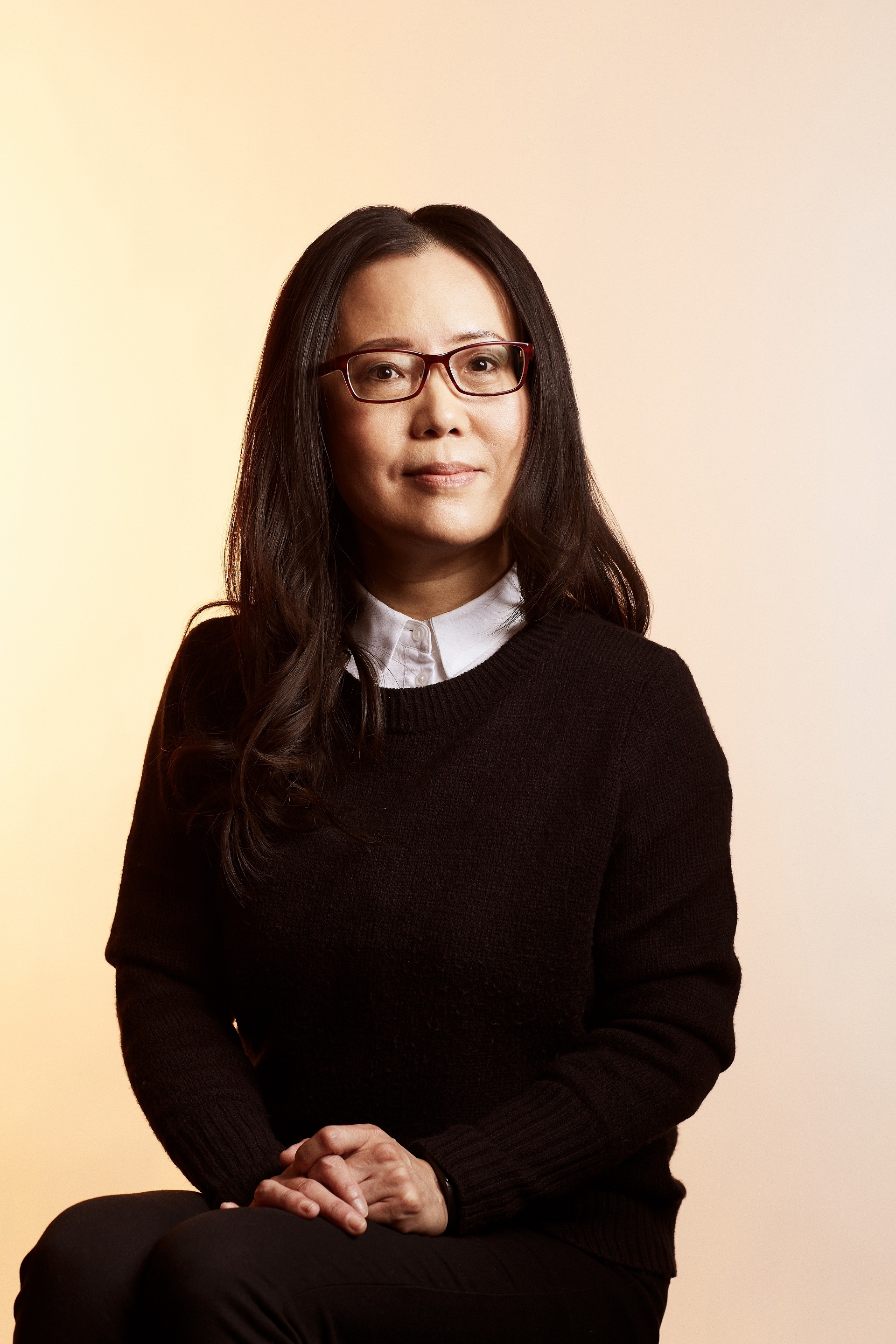
Dr. Shen admits that coming to the United States from China to earn a PhD was a tough decision. When the chance presented itself, she was in her early 30’s, had a good job, was married with a six-year-old daughter and had limited English skills. “I was happy with my work and life in China, reluctant to leave home and start a career from the beginning again in a foreign country,” recalls Dr. Shen, who grew up in the ancient city of Xi’an and went to university in Nanjing. “I hesitated when I had the opportunity to do PhD studies, but my family gave me very strong support to convince me I should go.” At the University of Illinois, Urbana-Champaign, Dr. Shen struggled to understand the lectures and had to put in hours of study afterward just to catch up—but she managed a straight-A average. Her family eventually joined her, with her husband enrolling as an MBA student and her daughter starting second grade.
After earning her doctorate, Dr. Shen spent five years as a postdoc at Columbia before starting her own lab at Weill Cornell Medicine, where she studies how cancer evolves. “I feel very fortunate that I decided to come to the United States,” she says. “Living in a country that is the leader in the biomedical field expanded my ability to do good research.” She’s equally grateful that her daughter—who’s now in dental school at Stony Brook University—was able to attend American schools and have a more diverse educational experience. “A main reason why the United States is the leading country in biomedical research is the diversity—the different cultures, the combined efforts of people with different backgrounds,” she says. “People like myself, who come here and benefit from the diverse scientific community, are thankful and willing to return what they learned to the country and to the whole world.”
Hoop Dream
Dr. Said ibrahim, MD
Chief, Division of Healthcare Delivery Science and Innovation
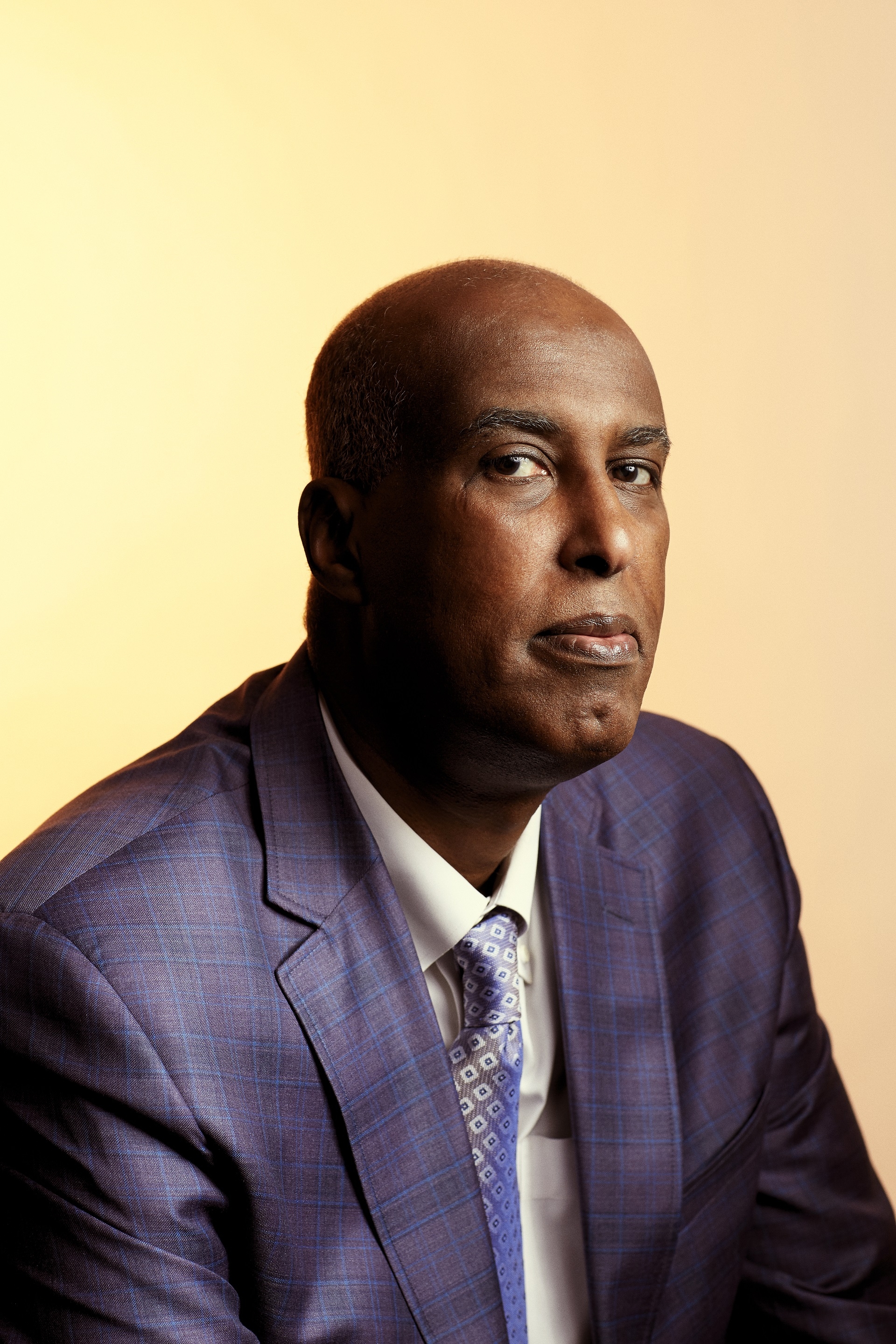
For Dr. Ibrahim—growing up in Somalia as one of the ten children of a small-town policeman and a homemaker—an MD degree seemed an unattainable dream. Medical school was reserved for wealthy elites, he explains, and his family lived on his dad’s salary of about $50 a month. So when the famed Cleveland State basketball team recruited him in the mid-80’s—he’s 6-foot-8—he jumped at the chance to attend college in the United States But his tryout was a bust: after two solid days of travel, he was taken straight to the gym, where he failed to impress and was told to return to Africa the next day. Determined to pursue his education, the 22-year-old ventured onto the streets of Cleveland with just $30 in his pocket. Luckily, he met a sympathetic legal aid attorney who helped him enroll at Oberlin College, where he played basketball and got his BA. He went on to earn an MD from Case Western Reserve, an MPH from Harvard and an MBA from MIT. With a passion for “taking care of those who need the most help,” Dr. Ibrahim has devoted his career to studying and combatting healthcare disparities. Before coming to Weill Cornell Medicine last year as chief of the newly established Division of Healthcare Delivery Science and Innovation as well as vice chair for strategy and development in the Department of Healthcare Policy and Research, he spent two decades practicing in the Veteran’s Administration system, which he calls “one of the most important safety nets in the United States.” The nation’s recent shift toward policies that curtail immigration, Dr. Ibrahim says, is disheartening. “I believe that what makes the United States so special and unique is its diversity,” he says. “But I’m an optimist. I believe this is a phase, and we’ll be back to the usual spirit of America, which is a place that’s welcoming to immigrants.”

